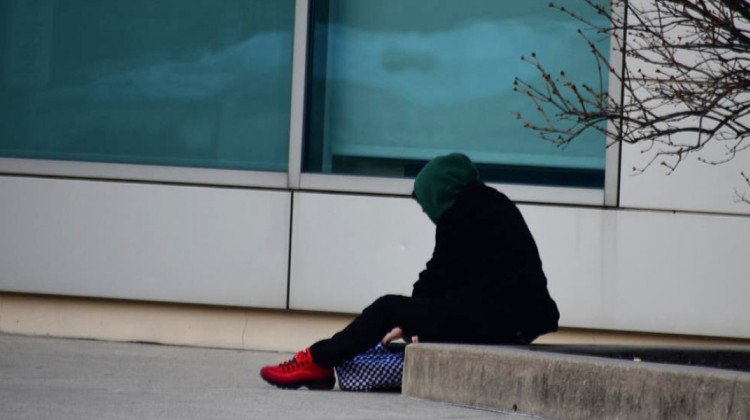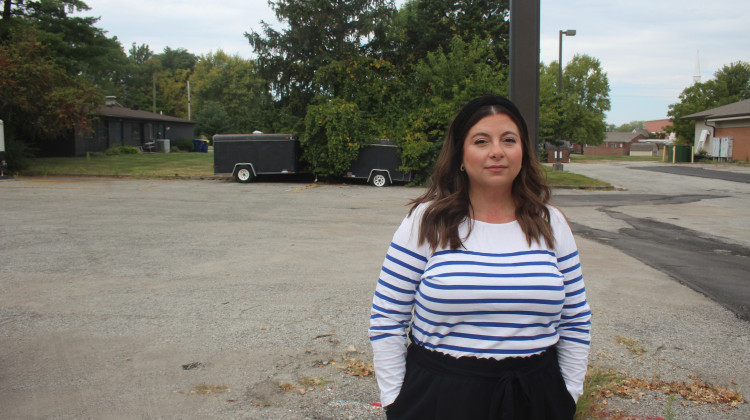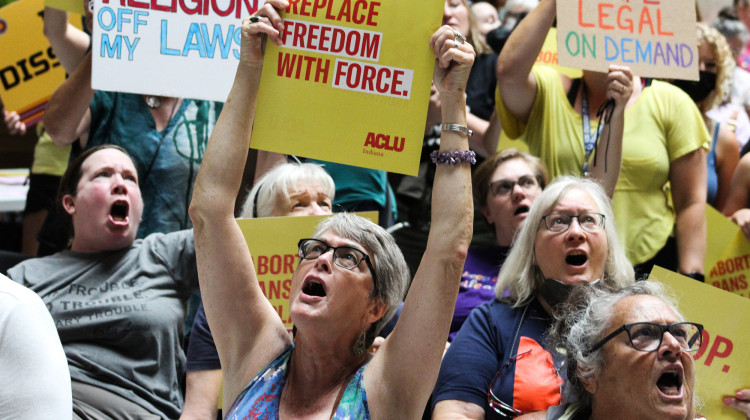
Demonstrators stood outside the United States Supreme Court during arguments in the same-sex marriage case.
Photo byTed Eytan (Flickr)As he rode to the airport to catch a flight back home to Indiana today, Greg Hasty’s voice spewed excitement.
“It was a huge crowd, a beautiful day. There were a lot of people coming together and sharing in the common goal, which is equality,” Hasty said.
Hasty and his husband CJ Vallero, who were plaintiffs in the case against Indiana’s same-sex marriage ban, were one of many couples who traveled to Washington D.C. over the past few days for the Supreme Court’s arguments on same-sex marriage.
“It’s been a great perspective on our history, the history of this country and connecting what we believe in with the fight we’ve put our names behind,” Hasty said.
The court heard two and a half hours of testimony today on the case, in hopes of answering two questions.
1) Does the U.S. constitution mandate that states must allow same-sex couples to marry? and 2) Must states recognize same-sex marriages performed in other states?
Justice Anthony Kennedy started the main line of questioning from the bench, asking whether the court should disregard a millennia-old tradition of marriage between one man and one woman.
Kennedy’s questions were pointed, but Hasty says that didn’t worry him.
“I’m not Kennedy’s best friend, but from what I’ve read and heard of him before in questioning, it just sounds like Justice Kennedy to me,” Hasty said.
Indiana University Maurer School of Law professor Steve Sanders agrees.
“Justice Kennedy often is a little more opaque,” Sanders says. “He’ll say something in oral arguments that makes you think he’s leaning one way and then does something else in the written opinion.”
When it comes to the actual arguments made, Sanders points out that the arguments the lawyers fighting against same-sex marriage made were similar to those made in Indiana’s case.
“[They] put a slightly different spin on the argument,” he says. “Rather than talking about responsible procreation, he said marriage has to do with bonding a child to his or her biological parents, but he had no coherent or logical response to the question ‘How is allowing gay people going to diminish the effect of that?’”
Sanders says he thinks the court is more likely to rule in favor of same-sex marriage, either in a 5-4 vote with Kennedy being the deciding vote or a 6-3 decision with Justice John Roberts agreeing that states must recognize marriage licenses issued to same-sex couples in other states, even if he does not agree states should be compelled to issue those licenses.
The Supreme Court is expected to rule on the case in June.
If the Supreme Court rules in favor of same-sex marriage, Indiana’s laws would remain the same because lower courts have already struck down the state’s ban on same-sex marriage.
However, if the court ruled that states can decide whether to allow same-sex marriage, Indiana would likely reinstate its ban, once again making same-sex marriage illegal in the state.
 DONATE
DONATE







 View More Articles
View More Articles

 Support WFYI. We can't do it without you.
Support WFYI. We can't do it without you.